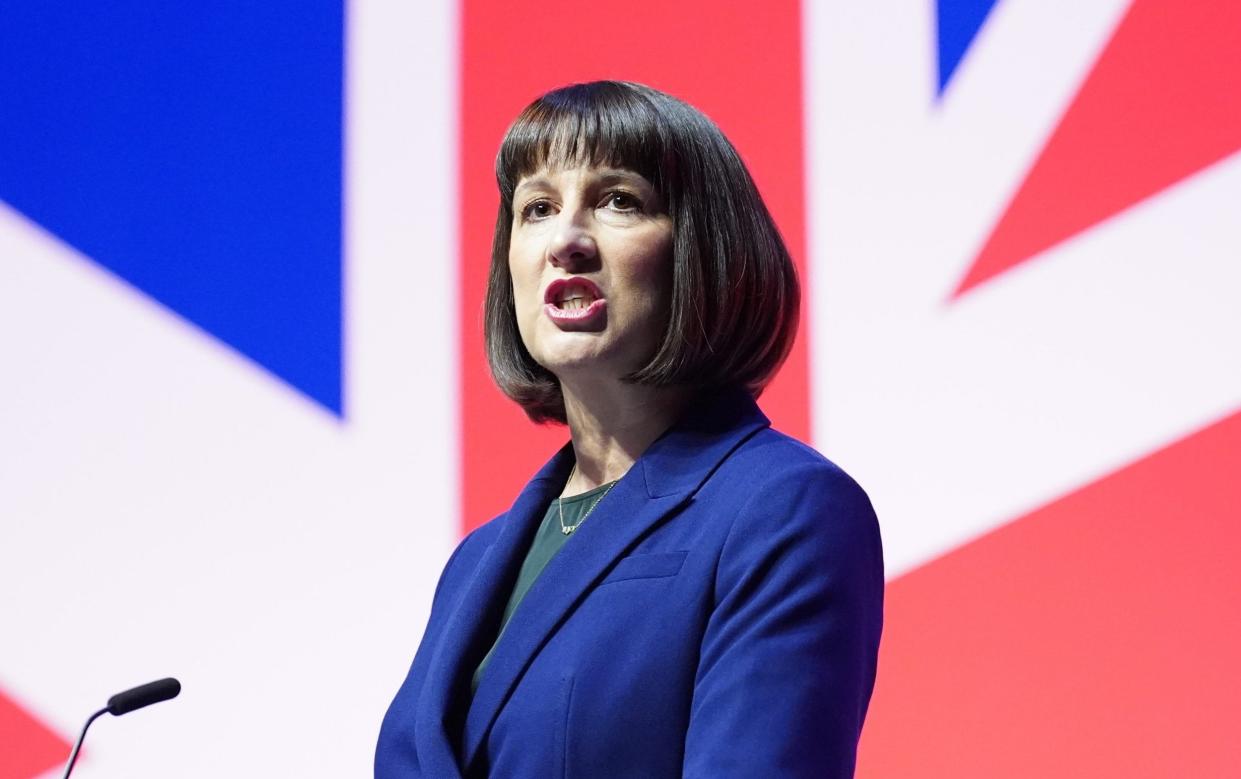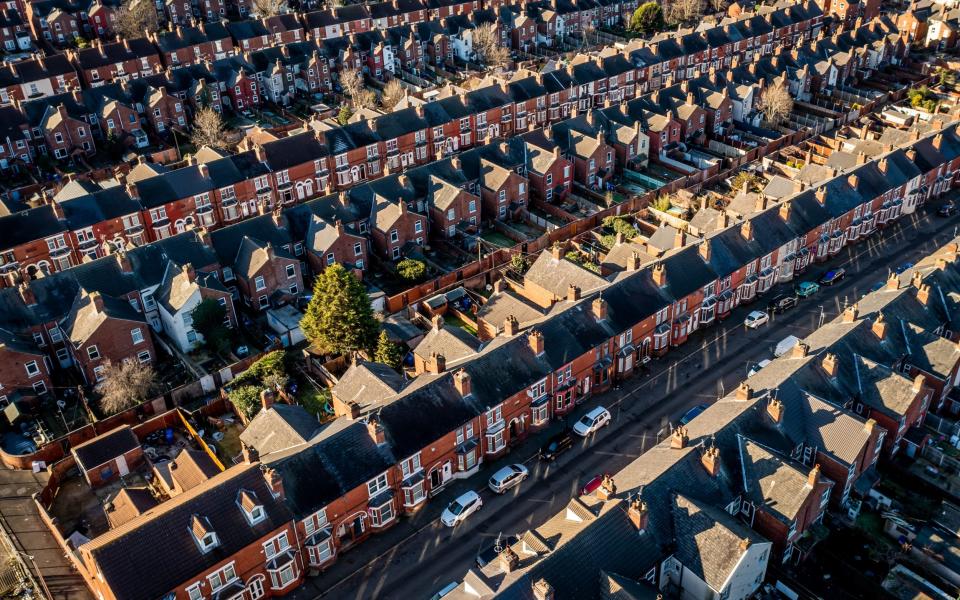Rachel Reeves proposed council tax shake-up that could cost millions £1,200 a year

- Oops!Something went wrong.Please try again later.
Rachel Reeves advocated an overhaul of council tax bands, a move that could cost more than four million households an average of £1,200 a year, The Sunday Telegraph can disclose.
In a pamphlet written before joining the Labour front bench, Ms Reeves, now the shadow chancellor, said that council tax was “at the very least” overdue a “re-evaluation and revision” of existing bands, which were set in 1991.
Ms Reeves has been at pains to insist that Labour will not raise taxes, using an interview with The Telegraph last summer to rule out any version of a wealth tax if Labour forms the next government.
But a council tax revaluation, which has also been previously advocated by Jim McMahon, now Sir Keir Starmer’s shadow local government minister, would be likely to result in tax increases for millions of households.
Asked if the party would rule out a council tax revaluation, in a similar vein to Ms Reeves’s pledge not to introduce a wealth tax, a Labour spokesman simply said that it “has no plans to introduce this in government”. The spokesman declined to categorically rule out such a move.
Review already under way in Wales
Asked last year about introducing any form of wealth tax, Ms Reeves told The Telegraph: “We won’t be doing that. It’s a denial.”
A council tax band revaluation is under way in Wales, where the Welsh Labour government says it wants to correct the current situation under which “a higher share of tax is charged relatively to households living in lower value properties.”
David TC Davies, the Welsh Secretary, has said it would cause “astronomical” council tax hikes for his constituents in Monmouthshire.
A revaluation of council tax bands across England - which would involve valuing every home in the country - could prove hugely controversial.

Similar plans were postponed by Tony Blair in 2005 after a 2003 revaluation in Wales led to tax rises for many households. The backlash prompted Labour to pledge in its 2010 manifesto not to hold a council tax revaluation in the next parliament.
David Cameron dropped the plan altogether after coming to power in 2010, following estimates that it would have left more than seven million families in England paying an extra £320 a year or more.
However, a national revaluation has been regularly presented to Conservative chancellors by Treasury officials since then, as a way to ease the tax burden on those in lower value homes. The plan has been rejected on the basis that it would lead to increases for millions.
In a pamphlet published in 2018, while Ms Reeves chaired the Commons business committee, the future shadow chancellor wrote: “Council tax, based on 1991 valuations, is at the very least long overdue a re-evaluation and revision of existing bands – a power which could be devolved to local government to match local needs.
“We should also consider the case for its overhaul and replacement with a property tax, levied on property owners.”
Bands based on 1991 property prices
Currently, council tax bands in England are based on the price each property would have sold for in 1991.
In a report in 2020, the Institute for Fiscal Studies said properties in band H, the highest band, produced three times as much tax as those in band A, despite being worth at least eight times the value of band A homes.
The IFS said council tax was “both increasingly out of date and arbitrary, and highly regressive with respect to property values”.
The IFS modelled changes which could see 4.2 million households - 17 per cent of the total in England - losing an average of £1,230 a year, while up to 10 million households would gain more than £200 a year.

In Feb 2020, Mr McMahon said: “We should look back and recognise that there has been a collective failure on council tax revaluation and the need to modernise. Governments duck this because it is not popular, but we now have a system that is very unfair.”
A Labour spokesman said: “The ideas in this pamphlet are not policy and will not feature in our manifesto.
“We have been clear that we want taxes to be lower for working people. Our plans to close tax loopholes and create a fairer tax system proved to be so common sense that the Tory government copied them in the Spring Budget.
“The only threat to the UK economy is five more years of Tory economic vandalism that has left working people worse off with higher bills, rising mortgages and the country in recession.”

